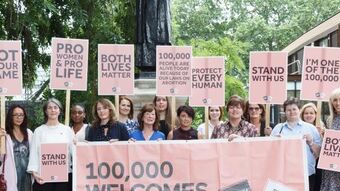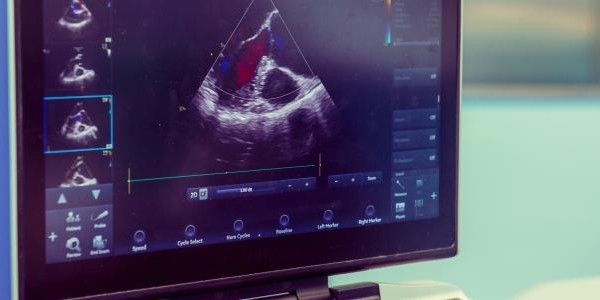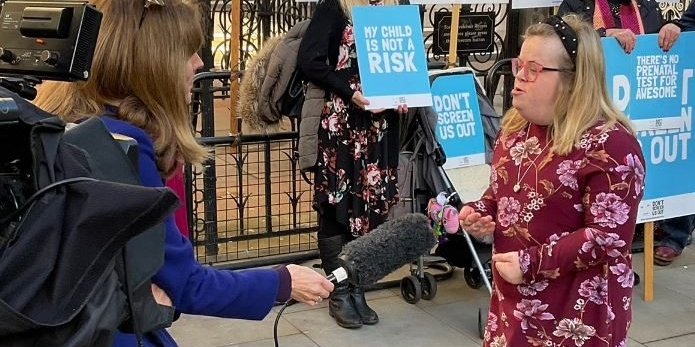Peers speak out about MPs imposing abortion law change on Northern Ireland
Abortion
On Wednesday, the Northern Ireland (Executive Formation) Bill had its second reading in the House of Lords, following the final stages in the Commons.
During Tuesday’s Commons debate, MP’s hijacked the Bill – which is narrow in its aim to extend the period for negotiating a new power-sharing deal to restore devolution in NI – to force through various amendments, including one on abortion.
What will the abortion amendment mean?
The abortion amendment will mean widespread abortion will be imposed on NI, without any prior consultation with the people of Northern Ireland.
It will mean that NI will go from having a life-affirming law which has saved 100,000 lives to a more extreme abortion regime than the rest of the UK. There will also be ramifications for the rest of the UK if this amendment finally becomes law.
Peers speak out
Here are some selected extracts from various speeches which demonstrate the strength of feeling in the House of Lords about the way in which abortion law change has been imposed on the people of NI. You can read the full debate here.
Lord Morrow
“Northern Ireland may not be some people’s favourite place, but even I have had my breath taken away by the total contempt with which we have been treated by so many Members of another place. This contempt is particularly pronounced in relation to abortion, on which the democratically elected Northern Ireland Assembly voted by a clear majority—with no ambiguity at all—not to change abortion law in any way as recently as 2016, on a cross-party basis. It was not one section of the community voting one way; it was right across the political and religious divide. I would not treat my enemies with such cavalier disregard. The Assembly voted decisively against any change by 59% to 40%. You may well say, and I suspect some are saying it to themselves, that Parliament is sovereign, and can do what it likes. That is right, but until now, just because Parliament could do something did not necessarily mean that it did it. All things might be lawful, but all things are not expedient.”
Lord Alton
“Regardless of what one thinks about abortion, there is no human right to abortion. The Universal Declaration of Human Rights has 30 articles, none of which suggests that there is a human right to abortion. This is a highly contested question which I will explore in a moment.
We have always treated Northern Ireland not as having to be in uniformity but as being different and having different cultural values. The law on abortion in Northern Ireland, with its distinct traditions and identity, is something about which many people in Northern Ireland hold a very different view from the views of the English metropolitan classes. This was recognised in the 1967 Act by excluding Northern Ireland from its provisions, and Westminster has not sought to legislate in this area since the formation of Northern Ireland in 1921. As recently as 2016, moreover, the democratically elected Northern Ireland Assembly voted not to change its abortion law in any way.
This law is as important to the people of Northern Ireland now as it has been in the past. Last year, after speaking in Belfast and Lisbon, I was privileged to meet a cross-community delegation of women from Northern Ireland, who came to Westminster with a simple message: “Don’t meddle with our law”. In making their case, they highlighted the seminal Both Lives Matter report, which found that 100,000 people are alive in Northern Ireland today who would not have been had they embraced the 1967 Act with the rest of us—an Act which has led, incidentally, to the ending of 9 million lives in Great Britain. That is one every three minutes, 600 every working day. To describe that law as progressive, as has been done from some quarters of your Lordships’ House today, is at the very minimum a contested question. Is it progressive to take the lives of 600 unborn babies every day?"
Lord Browne
“To regain any sense of the problems with this, one must have some appreciation of the enormity of these issues. Abortion is a sensitive issue in England and Wales, but it is much more sensitive in Northern Ireland, where our distinctive approach to this issue is an important part of our history and identity. As the noble Lord, Lord Alton, remarked, 100,000 people are alive today who would not be had we embraced the 1967 Act. Not only that, it is a matter on which the democratically elected Northern Ireland Assembly expressed a view very recently, in 2016, when it chose not to amend our law in any way.
I turn to the new Clauses 9 and 10 on abortion and same-sex marriage. Regardless of our views—there is a wide divergence of views right across this House—we can surely agree that these issues deserve proper attention and debate and, in the first instance, should be decided by a Northern Ireland Executive. There is a risk that these poorly drawn-up amendments will create a dangerous precedent for interference that could have wider consequences for constitutional arrangements. If these two devolved matters can be resolved here in Westminster, why can the other 69 outstanding priority issues vital to the enhancement of the daily lives of the people in Northern Ireland not be treated in the same way? Indeed, are we about to witness the potential dismantling of the Northern Ireland devolution settlement? If we take this path, which may indeed prove popular with some, any hope of a successful outcome to the Stormont talks may be dealt a fatal blow.”
Lord Eames
“Abortion and same-sex marriage deserve the deepest possible examination, sincerely entered into, and not in a rushed, pressurised way. Because of the failure of Northern Ireland’s Executive, we will sweep those issues along, which is doing a disservice to those who are sincerely asking us to consider them; a disservice to such fundamental elements of human understanding and life. It is not a question of, “I am against abortion; I am against same-sex marriage”. That has nothing to do with the discussion. The discussion is: “Those are principles of such importance and uniqueness to human understanding that they deserve proper attention and time”, but what is happening? It is happening for Northern Ireland, after the years of suffering, the years of disunity, the years of suspicion, the years in which gradually the two great religions have come together so closely, forged by the Troubles and by the suffering we have seen. Here is the introduction of something so utterly divisive in the eyes of the ordinary people—Protestant, Roman Catholic, Unionist, Nationalist, it does not matter, for we are discussing human relationships and they ought to take priority.”
Baroness O’Loan
“What happened yesterday in the other place was reminiscent of colonial days. The people of Northern Ireland are being denied the right the law accords them to make their own decisions in devolved matters. Through the amendments introduced yesterday, the other place has driven a coach and horses through the Good Friday agreement, which I would remind noble Lords is an international treaty binding on the United Kingdom. In addition, by doing this, the other place has given effect to the demands of Sinn Féin and taken a decision against the DUP. Others are saying that the DUP is very happy about this because it will not have to deal with those two issues. I have not heard noble Lords here or colleagues elsewhere express that view.
I believe, as do hundreds and thousands of others, that human life exists from the moment of conception and that it should be protected at all times. Even those who are pro-choice are now beginning to accept that abortion is about killing babies. If you are three or five months pregnant and you go for a scan, the radiographer does not say to you, “That’s your foetus” or “That’s your embryo”. They say to you, “That’s your baby”. When I lost my baby, as the consequence of a bomb explosion, the doctor who stood at the end of my bed did not say to me, “Your pregnancy is over”. He said to me, “Your baby is dead”.
I will say a word to the noble Baroness, Lady Harris. I reassure her that neither I nor hundreds of thousands of people in Northern Ireland feel oppressed, down- rodden or deprived of equality—far from it. We think that our law brings freedom to mothers and their children, and we seek to support them. I spoke in Oxford just a couple of weeks ago on freedom of conscience, and at the end of it, a woman came up to me. She said that she had recently carried a baby who had Down’s syndrome, and at each of her prenatal visits, the doctor had said to her, “You know it would be much easier—you could have an abortion. You should have an abortion”. It was a constant message, right through her pregnancy—a time when women are most vulnerable.
Let us be very clear. Clause 9 would change the law in England and Wales. The Member for Walthamstow said in the other place in June last year:
“We would like to repeal sections 58 and 59 of OAPA”.
Those are the penalty provisions of the Offences against the Person Act. This clause will override not just the expressed will of the last democratically elected Northern Ireland Assembly but the deliberations of this Parliament.
I do not believe that those who voted as they did in the other place yesterday really intended to abolish any penalty for unlawful abortion in the UK, yet that would be the effect. If we decriminalise abortion—that is what this amendment seeks to do—we will make abortion available up to birth. I do not know how many of your Lordships have known the beauty and the terror of the moment of birth: the moment when a new soul, a beautiful little baby, comes into the world. It is a moment of absolute wonder. I accept that there are occasions when women do not want to carry their babies to term, but we need to be very clear that abortion is not a painless, clean, medical process. A baby will be killed in the womb through medication, have poison injected into its heart so that it is born dead, or it might just be born alive, as are an average of 30 babies each year in England and Wales, and left to die. In that brave new world, there will be fewer and fewer children with disabilities, as they do not merit the right to life. According to the Bill before your Lordships’ House, children with disabilities will be given no protection. Yet we know that while children may be born with disabilities, that is not the sum total of the reality of their existence; they deserve more than to be defined by their disability.
In England and Wales, we abort children because they are the wrong sex—we have proof of it—and because they have conditions like club feet and cleft palates, which are eminently curable. In effect, we have abortion on demand up to 24 weeks, and we will have abortion to birth. What sort of civilisation would countenance the killing of defenceless, unborn babies in the place where they should be safest: the mother’s womb? What sort of civilisation does this right up to the moment a baby is born?”
Lord McCrea
“I have been contacted by many people from Northern Ireland who are not only concerned about other issues but deeply grieved about the manner in which the other place treated Northern Ireland yesterday. It would be interesting to know in which other jurisdictions in the world such a major change—for example, in abortion law—has been made in this way, without warning or prior consultation with the people. As has been said, a ComRes poll suggested that 64% of people in Northern Ireland oppose Westminster trying to change the law, with 66% of women and 72% of 18 to 32 year-olds being against it—yet it is being forced on Northern Ireland. Is that democracy? It is enough to make one weep. To add insult to injury, this monumental change has been introduced with total disregard for Northern Ireland.”




Share story
Peers speak out about MPs imposing abortion law change on Northern Ireland